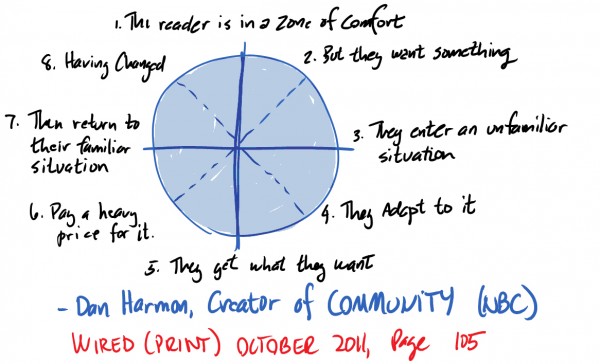Forum fisticuffs it is then. En garde!
Chamomile wrote:
Why, yes, I do get irate when people nominally talking to me flat-out ignore what I write to have pretend conversations with imaginary people instead.
This is a forum. I can speak to the readers at large and appeal to the crowd for input or other perspectives. This isn't or
wasn't a converstation or debate specifically between us.
Chamomile wrote:
So when I said "X will lead to Y" and you said "only Z will lead to Y" you didn't mean, like, in a way that disagreed with me, you just meant in a way where you hold two mutually exclusive positions to be true simultaneously.
It is possible (and even useful) to quote someone out of context because the quote reveals or illustrates a general truth that is pertinent to the point they are trying to make. When you said "X will lead to Y" I made a comment about my experience with Y, my comment being that Y already occurs independent of X.
Chamomile wrote:
You seem to be bad at reading, so I will repost for you the section that you missed last time:
Your inability to comprehend other people's viewpoints is getting pretty well established in general, so that's not really surprising. Some people do not, in fact, go to RPGs for the roleplaying. Some of them just want to have a social experience with their friends. Some of them like engaging with a world as a strategic puzzle, and like that having a real human being managing that puzzle means it can react to bizarre, outside-the-box actions. Not everyone who plays RPGs is doing it exclusively for the reasons you do.
ArmorClassZero wrote:The 'bizarre ramble' I go on was confirmation of the obvious, "people participate in RPGs with different priorities and find different aspects fun".
A position you simultaneously claim to be both obviously true and obviously false, in this post within the space of two sentences.
It is entirely possible to want to do something but have different priorities within, and enjoy different aspects of, that thing. It is not an example of cognitive dissonance to presume that someone who agrees to a RPG session does so with different priorities than others at the table, and enjoys different aspects of, the game. Wanting to participate in an RPG, and agreeing to do so, does not mutually exclude reasons beyond RP like socializing or tactical miniatures combat or whathaveyou.
For reference, my original comment was "IDK why someone would agree to play a RPG and then not
at least try to RP" because to me that notion is like sitting down to play
Settlers of Catan or
Monopoly and then just half-heartedly rolling your die and moving your piece whenever your turn comes around. It doesn't exclude socializing or power-gaming or whathaveyou, but IMO it defeats the purpose of being a player in the game since in that instance you're little more than a glorified spectator.
Charmomile wrote:What exactly do you think being a storyteller is? Especially if you're acknowledging that it's not correlated exclusively with the quality of the stories being told?
A story-teller is the person who tells the story. They may or may not be the creator of a particular story. The quality of a story being told depends on a lot of things and tends to be subjective. A story-teller and the quality of the story are obviously correlated, but exclusively so? I'd hesitate to agree. Audience expectation is is a big factor in perceived quality of the story. M. Night Shamallama's
The Village was competently told and decent enough, but it was marketed as something it was not (a horror film) and the public perception for a long time afterwards was that it was a shite movie.
The skill and trade of the story-teller is such that most people will never look behind the curtain or under the hood to find all the little bugs, plot holes, implausible premisses, character inconsistencies, etc etc.

